-
 Bitcoin
Bitcoin $77,017.2292
-7.71% -
 Ethereum
Ethereum $1,544.7448
-14.68% -
 Tether USDt
Tether USDt $0.9993
-0.04% -
 XRP
XRP $1.7869
-16.16% -
 BNB
BNB $547.5351
-7.52% -
 USDC
USDC $1.0000
-0.02% -
 Solana
Solana $102.2100
-14.88% -
 TRON
TRON $0.2262
-4.37% -
 Dogecoin
Dogecoin $0.1419
-15.33% -
 Cardano
Cardano $0.5560
-14.09% -
 UNUS SED LEO
UNUS SED LEO $8.9036
-2.66% -
 Toncoin
Toncoin $2.9976
-7.75% -
 Chainlink
Chainlink $11.0093
-14.01% -
 Avalanche
Avalanche $15.9716
-8.45% -
 Stellar
Stellar $0.2125
-15.68% -
 Shiba Inu
Shiba Inu $0.0...01106
-9.78% -
 Sui
Sui $1.8752
-14.28% -
 MANTRA
MANTRA $6.0300
-3.00% -
 Hedera
Hedera $0.1354
-15.62% -
 Polkadot
Polkadot $3.5229
-10.81% -
 Dai
Dai $1.0001
0.01% -
 Bitcoin Cash
Bitcoin Cash $266.1713
-10.38% -
 Ethena USDe
Ethena USDe $0.9985
-0.06% -
 Litecoin
Litecoin $67.6901
-17.80% -
 Bitget Token
Bitget Token $3.8941
-12.68% -
 Pi
Pi $0.5573
-14.94% -
 Monero
Monero $196.6764
-8.39% -
 Hyperliquid
Hyperliquid $10.1507
-13.37% -
 Uniswap
Uniswap $5.0280
-13.84% -
 OKB
OKB $51.4835
-4.93%
How to calculate MEXC's contract index price?
MEXC's contract index price, a weighted average from platforms like Binance, Huobi, and OKEx, ensures fair market value for futures and perpetual contracts.
Apr 06, 2025 at 11:07 am
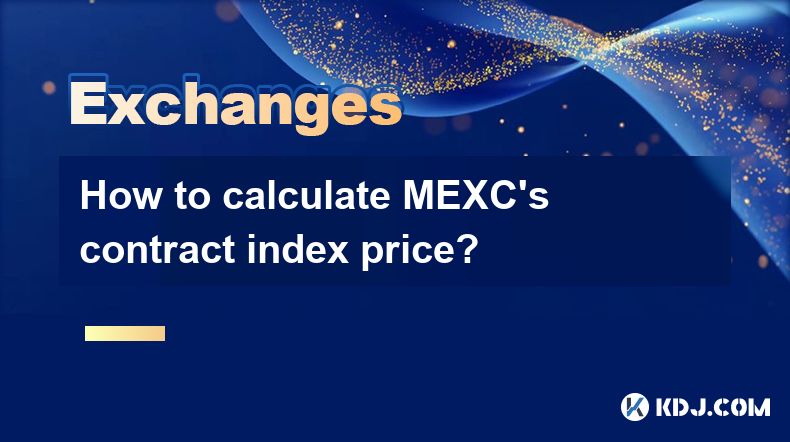
Understanding MEXC's Contract Index Price
MEXC, one of the leading cryptocurrency exchanges, offers various trading products, including futures and perpetual contracts. The contract index price is a crucial component in these trading products, as it serves as a reference for calculating profits and losses. Understanding how MEXC calculates its contract index price is essential for traders to make informed decisions.
What is the Contract Index Price?
The contract index price on MEXC is a weighted average price derived from multiple spot trading platforms. This method ensures that the index price reflects a fair market value, minimizing the impact of price manipulation on any single exchange. The index price is used to settle contracts and to trigger margin calls, making it a vital metric for traders.
Components of the Contract Index Price
MEXC's contract index price is calculated using data from several reputable spot exchanges. The specific exchanges used can vary depending on the asset, but typically include major platforms like Binance, Huobi, and OKEx. The data from these exchanges is aggregated and weighted to form the final index price.
The Calculation Process
To calculate the contract index price, MEXC follows a systematic approach:
- Data Collection: MEXC collects real-time price data from the selected spot exchanges.
- Data Filtering: The collected data is filtered to remove any outliers or anomalies that could skew the index price.
- Weighting: Each exchange's price data is assigned a weight based on factors such as trading volume and liquidity. The weights are adjusted periodically to reflect changes in market conditions.
- Aggregation: The weighted prices are then aggregated to form the final index price.
Example of Index Price Calculation
Let's consider a hypothetical example to illustrate how MEXC calculates the contract index price for Bitcoin (BTC). Suppose MEXC uses three exchanges: Binance, Huobi, and OKEx, with the following weights and prices:
- Binance: Weight = 0.4, Price = $30,000
- Huobi: Weight = 0.3, Price = $30,100
- OKEx: Weight = 0.3, Price = $29,900
The index price would be calculated as follows:
[ \text{Index Price} = (0.4 \times 30,000) + (0.3 \times 30,100) + (0.3 \times 29,900) ]
[ \text{Index Price} = 12,000 + 9,030 + 8,970 ]
[ \text{Index Price} = 30,000 ]
In this example, the contract index price for Bitcoin on MEXC would be $30,000.
Importance of the Contract Index Price
The contract index price plays a critical role in the trading of futures and perpetual contracts on MEXC. It is used to:
- Settle Contracts: At the end of a contract period, the final settlement price is based on the index price.
- Trigger Margin Calls: If the index price moves against a trader's position, it may trigger a margin call to protect the exchange from potential losses.
- Calculate Profits and Losses: The index price is used to determine the unrealized and realized profits and losses of a trader's position.
How to Access the Contract Index Price on MEXC
Traders can easily access the contract index price on MEXC through the following steps:
- Log into your MEXC account.
- Navigate to the futures or perpetual contracts section.
- Select the specific contract you are interested in.
- Look for the 'Index Price' or 'Mark Price' section, which displays the current contract index price.
Factors Affecting the Contract Index Price
Several factors can influence the contract index price on MEXC:
- Market Liquidity: Higher liquidity on the spot exchanges used in the index calculation can lead to a more stable index price.
- Trading Volume: Exchanges with higher trading volumes are typically given more weight in the index calculation.
- Price Volatility: Sudden changes in the market can cause fluctuations in the index price, affecting traders' positions.
Using the Contract Index Price in Trading Strategies
Traders can leverage the contract index price in various trading strategies:
- Arbitrage: By comparing the contract index price with the actual trading price, traders can identify arbitrage opportunities.
- Hedging: Traders can use the index price to hedge their positions against market movements.
- Risk Management: Monitoring the index price helps traders manage their risk exposure and adjust their positions accordingly.
Frequently Asked Questions
Q: How often is the contract index price updated on MEXC?
A: The contract index price on MEXC is updated in real-time, reflecting the latest data from the spot exchanges used in the calculation.
Q: Can the weights assigned to different exchanges in the index price calculation change?
A: Yes, MEXC periodically reviews and adjusts the weights assigned to different exchanges based on factors such as trading volume and liquidity to ensure the index price remains accurate and fair.
Q: Is the contract index price the same as the mark price on MEXC?
A: No, while related, the contract index price and the mark price are different. The mark price is used to prevent market manipulation and is calculated using a combination of the index price and the last traded price of the contract.
Q: How can I verify the accuracy of the contract index price on MEXC?
A: Traders can verify the accuracy of the contract index price by comparing it with the prices on the spot exchanges used in the calculation. MEXC also provides transparency by listing the exchanges and weights used in the index price calculation.
Disclaimer:info@kdj.com
The information provided is not trading advice. kdj.com does not assume any responsibility for any investments made based on the information provided in this article. Cryptocurrencies are highly volatile and it is highly recommended that you invest with caution after thorough research!
If you believe that the content used on this website infringes your copyright, please contact us immediately (info@kdj.com) and we will delete it promptly.
- Cryptocurrency Market Plummets with the Start of Asian Financial Markets
- 2025-04-07 13:25:12
- Bitcoin Expands Beyond Digital Gold with OroBit's Innovative Layer 2 Protocol
- 2025-04-07 13:25:12
- International Monetary Fund (IMF) Releases Balance of Payments Manual (BPM7), Classifying Bitcoin (BTC) as an Asset
- 2025-04-07 13:20:11
- North Korea-affiliated hackers may have scaled back their operations
- 2025-04-07 13:20:11
- A third of Brits admit 'stealing Easter treats' from their children
- 2025-04-07 13:15:12
- The Shibarium Updates account on the X social media network grabbed the SHIB community's attention as it published a post that mentions Ryoshi – the mysterious Shiba Inu founder who has stepped into the unknown.
- 2025-04-07 13:15:12
Related knowledge
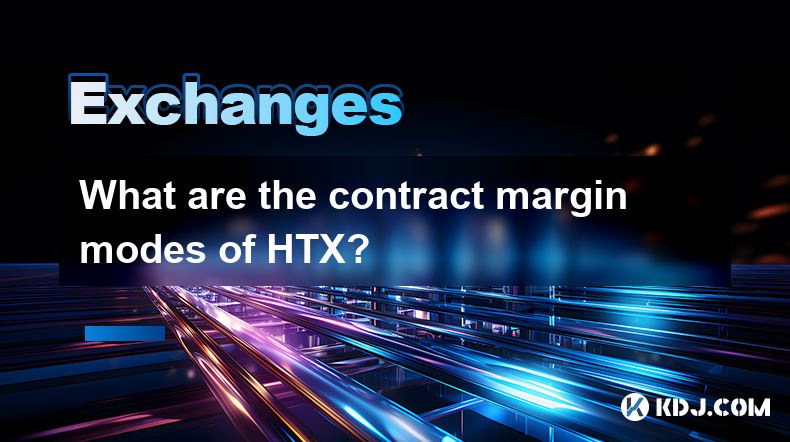
What are the contract margin modes of HTX?
Apr 04,2025 at 02:14pm
HTX, formerly known as Huobi, offers various contract margin modes to cater to the diverse needs of traders. Understanding these modes is crucial for effectively managing risk and maximizing potential returns. In this article, we will delve into the different contract margin modes available on HTX, explaining their features, benefits, and how to use the...
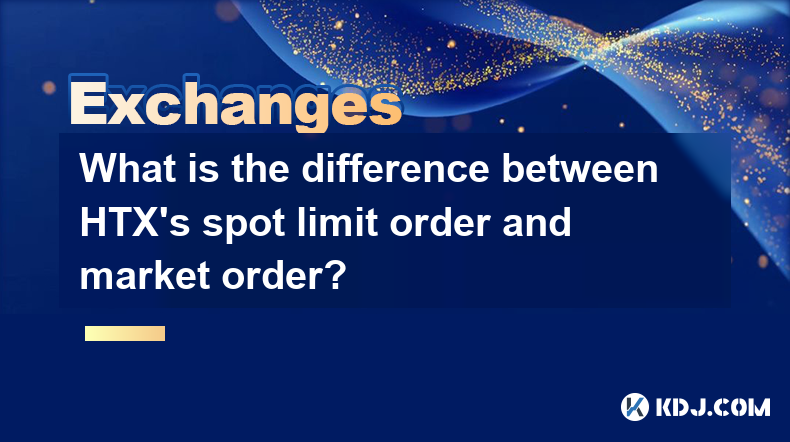
What is the difference between HTX's spot limit order and market order?
Apr 07,2025 at 01:43pm
The trading landscape within the cryptocurrency market is intricate, offering various methods to execute trades. Among the popular exchanges, HTX (formerly Huobi) provides its users with multiple order types to facilitate trading. Two of the most commonly used order types on HTX are the spot limit order and the spot market order. Understanding the nuanc...
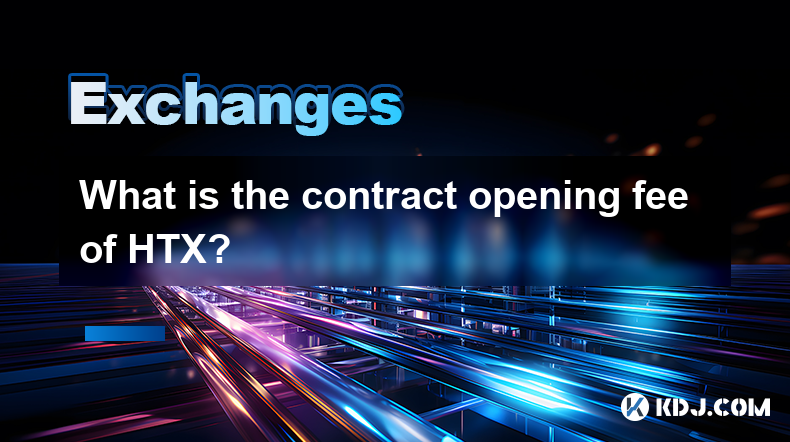
What is the contract opening fee of HTX?
Apr 05,2025 at 09:07pm
The contract opening fee on HTX, formerly known as Huobi, is a critical aspect for traders to understand before engaging in futures trading on this platform. HTX charges a contract opening fee that varies depending on the type of contract and the user's trading level. This fee is essential to consider as it directly impacts the overall cost of trading a...
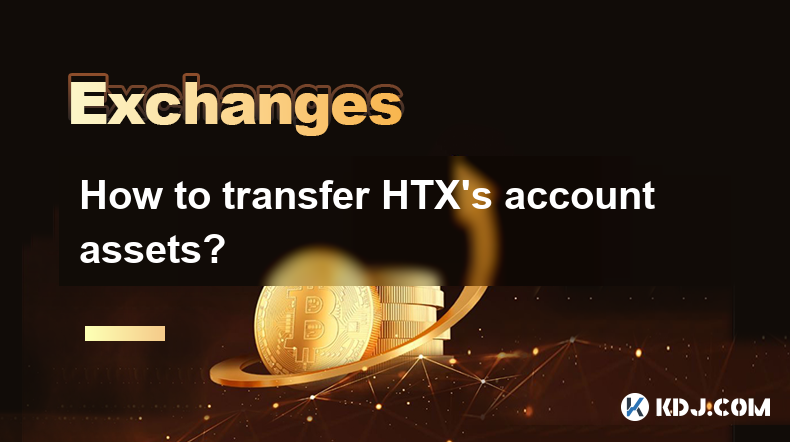
How to transfer HTX's account assets?
Apr 04,2025 at 09:28pm
Introduction to HTX and Account AssetsHTX, formerly known as Huobi, is a leading cryptocurrency exchange that offers a wide range of trading services. One of the essential functions for users is the ability to transfer assets within their HTX accounts. Whether you're moving funds between different wallets or sending assets to another user, understanding...
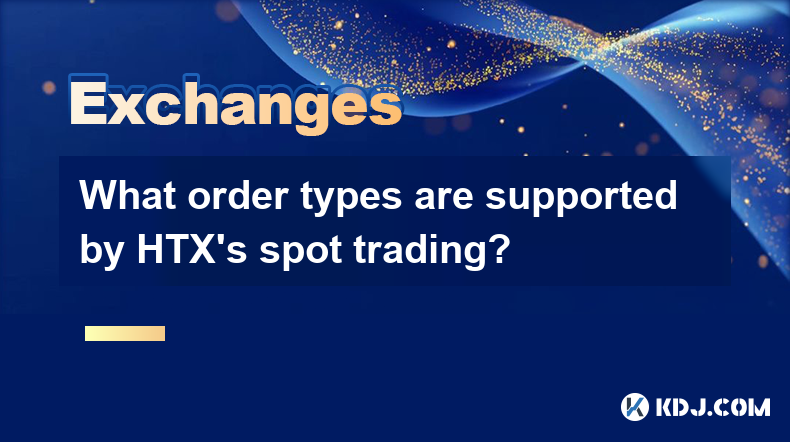
What order types are supported by HTX's spot trading?
Apr 04,2025 at 04:42am
HTX, formerly known as Huobi, is a well-established cryptocurrency exchange that offers a variety of order types for spot trading. Understanding these order types is crucial for traders looking to execute their strategies effectively. In this article, we will explore the different order types supported by HTX's spot trading platform, providing detailed ...
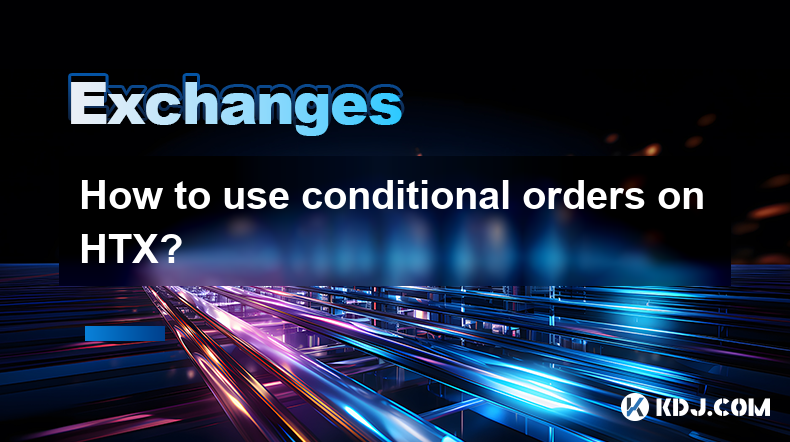
How to use conditional orders on HTX?
Apr 06,2025 at 04:35am
Understanding Conditional Orders on HTXConditional orders on HTX are a powerful tool for traders looking to automate their trading strategies. These orders allow you to set specific conditions under which a trade will be executed, without needing to monitor the market constantly. This can be particularly useful in volatile markets where quick reactions ...

What are the contract margin modes of HTX?
Apr 04,2025 at 02:14pm
HTX, formerly known as Huobi, offers various contract margin modes to cater to the diverse needs of traders. Understanding these modes is crucial for effectively managing risk and maximizing potential returns. In this article, we will delve into the different contract margin modes available on HTX, explaining their features, benefits, and how to use the...

What is the difference between HTX's spot limit order and market order?
Apr 07,2025 at 01:43pm
The trading landscape within the cryptocurrency market is intricate, offering various methods to execute trades. Among the popular exchanges, HTX (formerly Huobi) provides its users with multiple order types to facilitate trading. Two of the most commonly used order types on HTX are the spot limit order and the spot market order. Understanding the nuanc...

What is the contract opening fee of HTX?
Apr 05,2025 at 09:07pm
The contract opening fee on HTX, formerly known as Huobi, is a critical aspect for traders to understand before engaging in futures trading on this platform. HTX charges a contract opening fee that varies depending on the type of contract and the user's trading level. This fee is essential to consider as it directly impacts the overall cost of trading a...

How to transfer HTX's account assets?
Apr 04,2025 at 09:28pm
Introduction to HTX and Account AssetsHTX, formerly known as Huobi, is a leading cryptocurrency exchange that offers a wide range of trading services. One of the essential functions for users is the ability to transfer assets within their HTX accounts. Whether you're moving funds between different wallets or sending assets to another user, understanding...

What order types are supported by HTX's spot trading?
Apr 04,2025 at 04:42am
HTX, formerly known as Huobi, is a well-established cryptocurrency exchange that offers a variety of order types for spot trading. Understanding these order types is crucial for traders looking to execute their strategies effectively. In this article, we will explore the different order types supported by HTX's spot trading platform, providing detailed ...

How to use conditional orders on HTX?
Apr 06,2025 at 04:35am
Understanding Conditional Orders on HTXConditional orders on HTX are a powerful tool for traders looking to automate their trading strategies. These orders allow you to set specific conditions under which a trade will be executed, without needing to monitor the market constantly. This can be particularly useful in volatile markets where quick reactions ...
See all articles





















































































